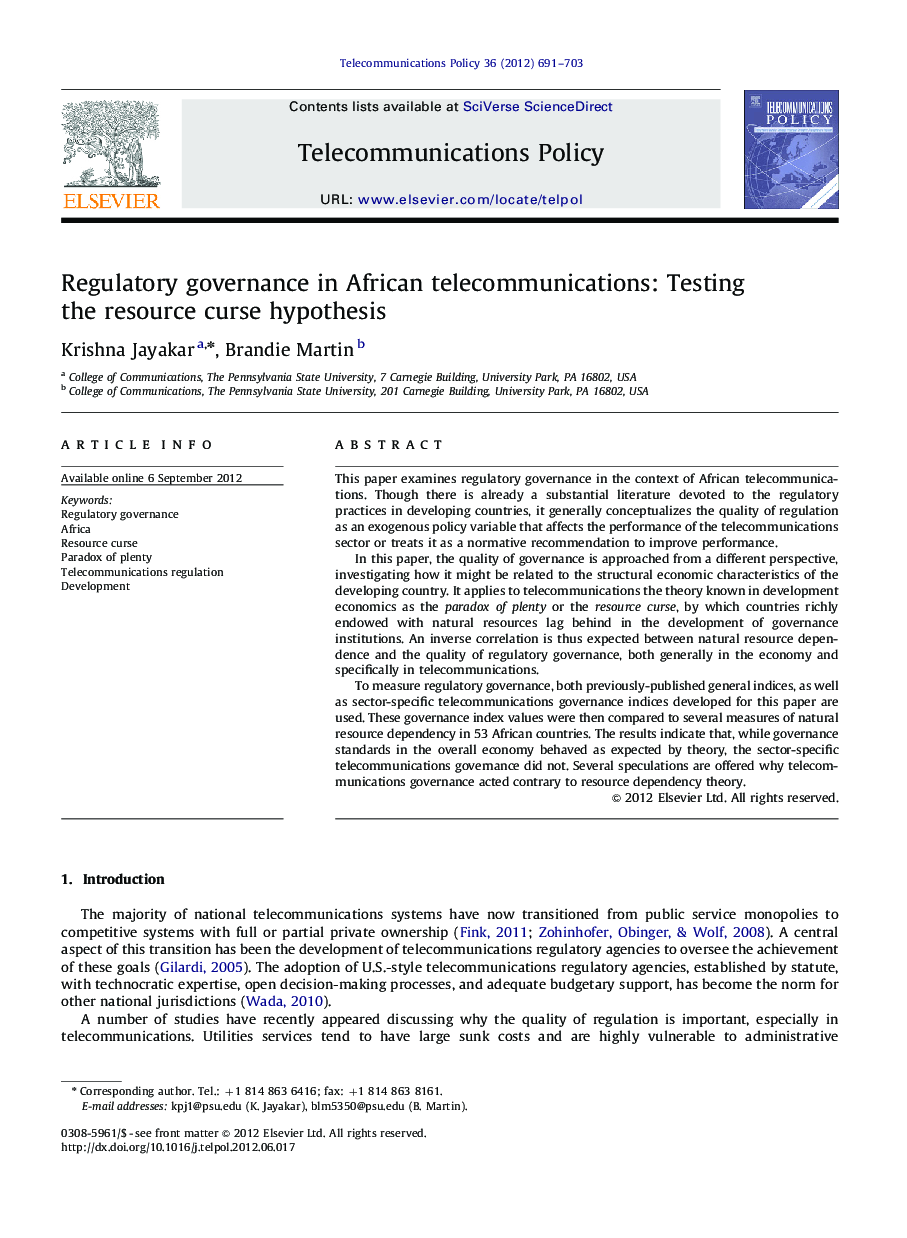| Article ID | Journal | Published Year | Pages | File Type |
|---|---|---|---|---|
| 559891 | Telecommunications Policy | 2012 | 13 Pages |
This paper examines regulatory governance in the context of African telecommunications. Though there is already a substantial literature devoted to the regulatory practices in developing countries, it generally conceptualizes the quality of regulation as an exogenous policy variable that affects the performance of the telecommunications sector or treats it as a normative recommendation to improve performance.In this paper, the quality of governance is approached from a different perspective, investigating how it might be related to the structural economic characteristics of the developing country. It applies to telecommunications the theory known in development economics as the paradox of plenty or the resource curse, by which countries richly endowed with natural resources lag behind in the development of governance institutions. An inverse correlation is thus expected between natural resource dependence and the quality of regulatory governance, both generally in the economy and specifically in telecommunications.To measure regulatory governance, both previously-published general indices, as well as sector-specific telecommunications governance indices developed for this paper are used. These governance index values were then compared to several measures of natural resource dependency in 53 African countries. The results indicate that, while governance standards in the overall economy behaved as expected by theory, the sector-specific telecommunications governance did not. Several speculations are offered why telecommunications governance acted contrary to resource dependency theory.
► A test of the resource curse hypothesis for all 53 African countries. ► Resource rich countries expected to have poorer governance standards. ► Indexing method synthesizes previously published telecom governance indicators. ► Effect evident on overall governance quality, but not on telecom governance. ► Speculates why telecommunications governance might be different.
